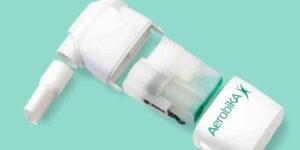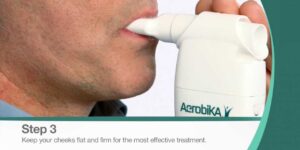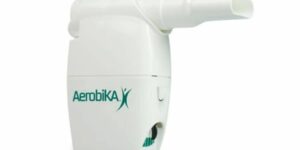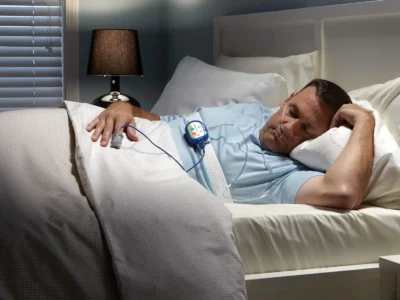
Choosing the Right CPAP Machine: A Complete Buyer’s Guide for Better Sleep
Oct 28 2025 Sleep Apnea Treatment CPAP machines CPAP therapy healthy sleep sleep apnea sleep apnea complications sleep apnea treatments sleep disorders sleep health sleep medicine sleep quality sleep studySleep is essential for overall health, yet millions of adults struggle with sleep apnea—a common sleep disorder that disrupts breathing during rest. Continuous Positive Airway Pressure (CPAP) machines have become the gold standard for managing sleep apnea. Choosing the right CPAP machine can dramatically improve sleep quality, prevent complications, and support long-term health.
This guide will help you understand CPAP therapy, compare machine types, and offer practical tips for getting the most out of your treatment.
What is Sleep Apnea?
Sleep apnea is a condition where your airway becomes partially or fully blocked while sleeping, causing repeated pauses in breathing. These pauses reduce oxygen supply to the body, leading to fatigue, cardiovascular strain, and other health risks.
See more: What Is an Aerobika Device and How Does It Help With Mucus Clearance?
Common Symptoms of Sleep Apnea:
- Loud snoring
- Gasping or choking during sleep
- Excessive daytime fatigue
- Morning headaches
- Mood swings or irritability
If left untreated, sleep apnea can increase the risk of high blood pressure, heart disease, stroke, and diabetes. A sleep study is the first step in diagnosing this condition and determining the best sleep apnea treatments.
How CPAP Machines Improve Sleep Quality
A CPAP machine delivers continuous, gentle air pressure through a mask to keep your airway open during sleep. This ensures steady oxygen flow, reduces apneas, and allows you to reach deeper, restorative stages of sleep.
Real-World Example:
Sarah, a 45-year-old teacher with moderate sleep apnea, struggled with daytime fatigue and concentration. After using a CPAP machine, she reported:
- Improved focus and energy at work
- Fewer nighttime awakenings
- Lower blood pressure and reduced snoring
CPAP therapy not only restores normal breathing but also enhances overall sleep health and daily functioning.
Types of CPAP Machines
Choosing the right CPAP machine depends on your comfort preferences, breathing needs, and lifestyle. Here are the main types:
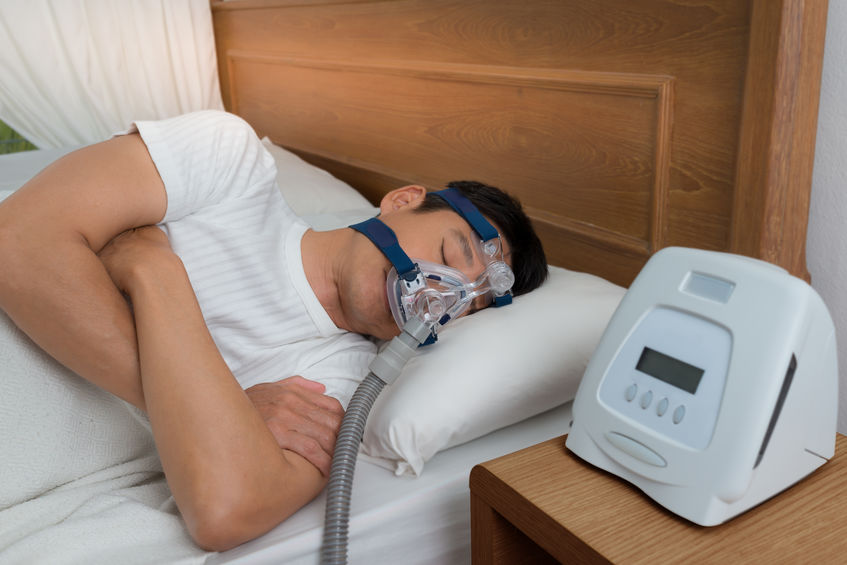
1. Standard CPAP
- Delivers a fixed air pressure throughout the night
- Best for patients with consistent sleep apnea patterns
2. Auto CPAP (APAP)
- Adjusts air pressure automatically based on breathing patterns
- Ideal for those with variable airway obstruction
3. Bi-level CPAP (BiPAP)
- Provides different pressures for inhalation and exhalation
- Suitable for patients with complex sleep apnea or other respiratory issues
4. Travel CPAP
- Compact and lightweight
- Convenient for frequent travelers or those with limited space
Key Features to Consider
When selecting a CPAP machine, consider the following:
- Mask type: Full-face, nasal, or nasal pillow
- Humidifier: Reduces nasal dryness
- Pressure settings: Based on your sleep study results
- Noise level: Look for quiet operation for uninterrupted sleep
- Data tracking: Helps your sleep specialist monitor therapy effectiveness
Benefits of Using CPAP Machines
1. Improved Sleep Quality
CPAP machines allow uninterrupted sleep cycles, which enhances memory, focus, and mood.
2. Reduced Cardiovascular Risk
Sleep apnea increases heart strain due to oxygen drops. CPAP therapy:
- Lowers blood pressure
- Reduces irregular heartbeats
- Minimizes risk of heart attack and stroke
3. Enhanced Daytime Energy
By preventing apneas and improving oxygen levels, CPAP users experience increased alertness and reduced daytime fatigue.
Tips for New CPAP Users
Starting CPAP therapy can feel overwhelming, but these tips can help:
- Proper mask fitting: Ensures comfort and prevents leaks
- Use a humidifier: Moist air prevents irritation
- Clean the machine regularly: Maintains hygiene and performance
- Side sleeping: Improves airflow and reduces snoring
- Track progress: Many machines store data to help your sleep specialist adjust therapy
Lifestyle Changes That Support CPAP Therapy
Alongside CPAP use, simple lifestyle adjustments can further improve sleep apnea outcomes:
- Maintain a healthy weight
- Avoid alcohol and sedatives before bedtime
- Exercise regularly
- Stick to a consistent sleep schedule
- Avoid heavy meals close to bedtime
Combining CPAP therapy with these changes enhances sleep quality and overall health.
The Role of Sleep Studies
A sleep study is essential to diagnose sleep apnea and determine the right CPAP settings. During the study, specialists monitor oxygen levels, heart rate, breathing patterns, and sleep cycles. Personalized results ensure effective treatment and optimal machine settings.
Conclusion
Choosing the right CPAP machine is critical for improving sleep quality and preventing complications of sleep apnea. By maintaining steady airflow, enhancing oxygen levels, and supporting heart health, CPAP therapy transforms both nighttime rest and daytime performance.
If you suspect sleep apnea, consult a sleep specialist. A sleep study and the right CPAP machine can make a significant difference in your health and overall quality of life.
FAQS
A CPAP machine delivers steady air pressure to keep the airway open, preventing breathing pauses. This improves oxygen flow, allowing deeper, restorative sleep and reducing symptoms like fatigue and snoring.
Yes. By preventing oxygen drops and reducing strain on the heart, CPAP therapy lowers blood pressure and reduces the risk of heart attack, stroke, and other cardiovascular complications associated with sleep apnea.
For most beginners, a standard or auto-adjusting CPAP (APAP) is ideal. Auto CPAP machines adjust air
Masks come in full-face, nasal, and nasal pillow styles. Comfort, fit, and the way you breathe at night are key factors. A well-fitting mask prevents air leaks and improves treatment effectiveness.

